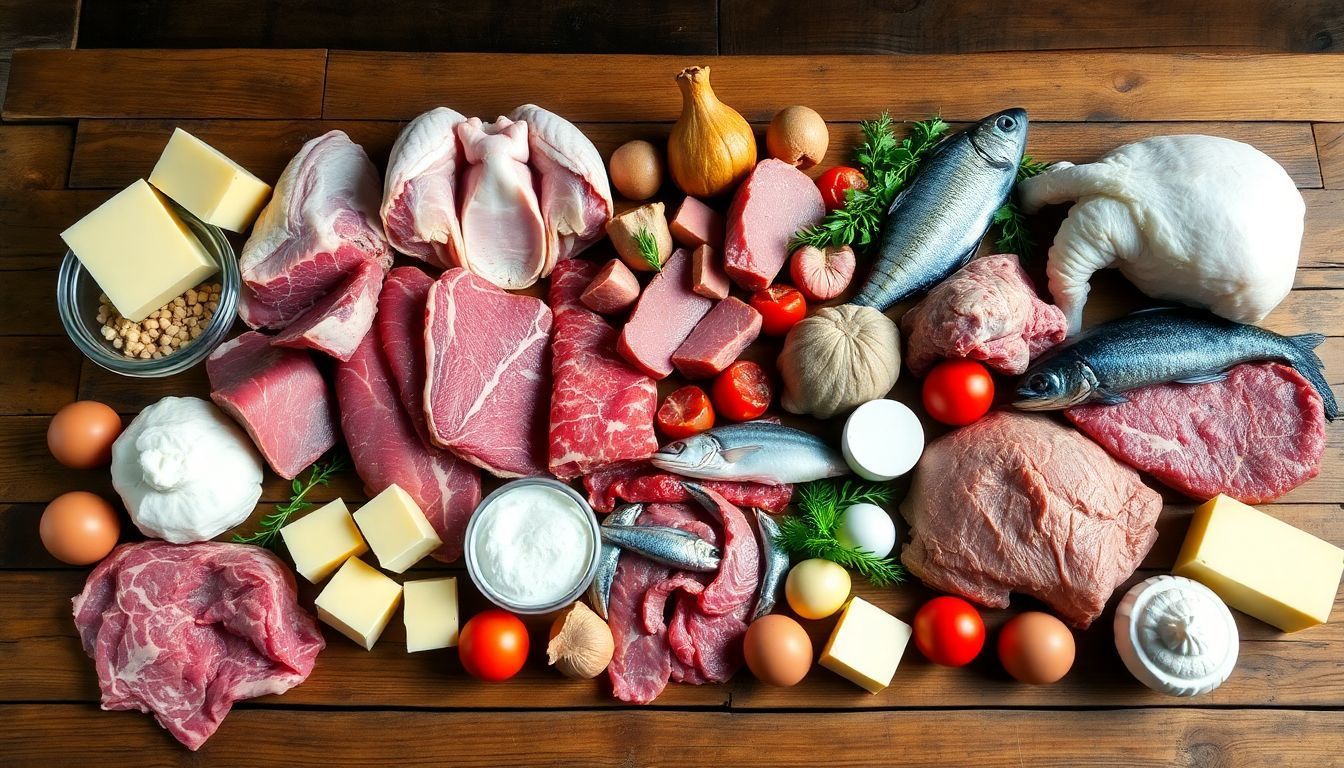Many people are looking for ways to lose weight and improve their health. The carnivore diet focuses only on eating animal-based foods like meat, fish, eggs, and some dairy products.
Thank you for reading this post, don't forget to subscribe!This blog will explain what the carnivore diet is, its possible benefits, and its risks. Keep reading to find out if this extreme low-carb diet is right for you!
Key Takeaways
- The carnivore diet includes only animal-based foods like meat, fish, eggs, and some dairy. It removes all plant-based foods such as fruits, vegetables, grains, and legumes.
- This zero-carb diet is very restrictive and focuses on high protein (20%) and fat (70–75%). Carbs are kept under 10%.
- Benefits include better blood sugar control for type 2 diabetes and weight loss due to the high-protein approach.
- Risks involve missing key nutrients like fiber, vitamin C, and folate while increasing LDL cholesterol. High red meat intake may raise the risk of colon cancer.
- A balanced diet with a variety of food types is safer for long-term health than this extreme eating plan.
What is the Carnivore Diet?

The carnivore diet is a high-protein, meat-only eating plan. It focuses on animal-based foods like red meat, poultry, seafood, eggs, and organ meats. Some dairy products like cheese or butter are allowed in moderation.
Fruits, vegetables, grains, legumes—any plant-based foods—are completely excluded.
This zero-carb diet eliminates carbohydrates entirely. It’s considered the most restrictive form of ketogenic diets because it avoids even low-carb options like seeds or nuts. Macronutrient intake typically consists of 70–75% fat and 20% protein while keeping carbs under 10%.
Water becomes the main drink since alcohol and sugary drinks are not included either.
Benefits of the Carnivore Diet
Cutting carbs to zero can improve blood sugar control. This is helpful for people with type 2 diabetes. A high-protein diet like this also helps with weight loss and reduces belly fat.
In a study, those eating 0.4–0.6 grams of protein per pound lost more weight than those eating less.
Followers report better moods and energy levels too. Removing refined carbs and processed foods may reduce high blood pressure and boost cardiovascular health. Focusing on animal-based meals provides steady nutrients without the spikes caused by sugary or high-carb diets.
High-protein, low-carb diets promote faster fat loss while supporting overall health.
Risks of the Carnivore Diet
Eating only animal-based foods can lead to missing important nutrients. The carnivore diet lacks fiber, vitamin C, and folate. This may cause digestive issues and long-term health problems.
A high intake of red meat and processed meats also raises the risk of colon cancer.
Saturated fat from red meat increases LDL cholesterol. High levels of LDL (bad) cholesterol can harm your heart over time. Kidney stones or gout may develop due to the high-protein nature of this diet.
Without plant-based foods, you miss key vitamins and minerals that support overall health.
Conclusion
The carnivore diet is extreme and cuts out many foods. It may help with weight loss and blood sugar control, but it has risks. Lack of fiber, vitamins, and minerals can harm long-term health.
High saturated fat may raise bad cholesterol levels. A balanced diet with variety is often the safest choice for lasting health.
